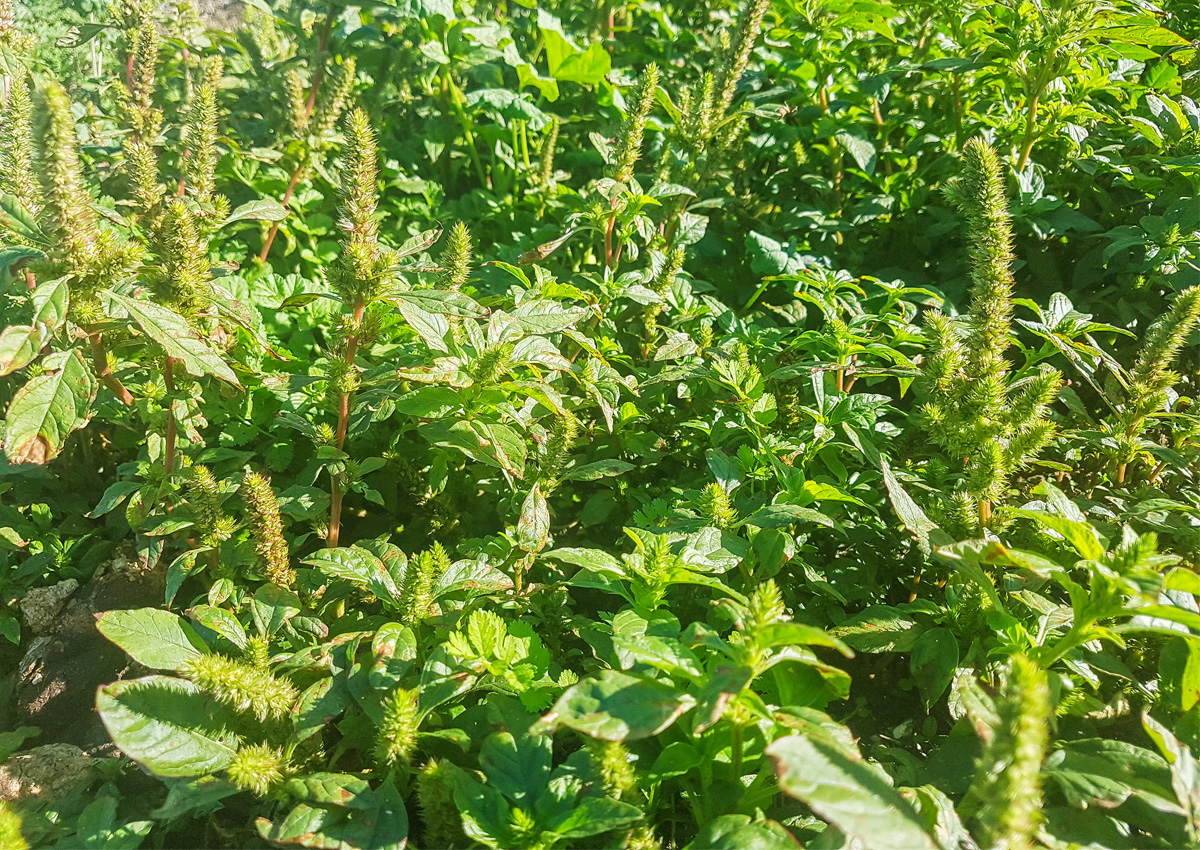
Genomes of Three Most Troublesome Agricultural Weeds Published
September 2, 2020| |
Scientists have published the most comprehensive genome information to date for all three of the most troublesome agricultural weed species, marking a new era of scientific discovery toward potential solutions. Waterhemp, smooth pigweed, and Palmer amaranth impact crop production in the United States and around the world.
All three genomes were assembled using advanced long-read sequencing, which maintains the integrity and continuity of the genome similar to the way large puzzle pieces provide a clearer picture of the whole than small pieces. In the assembly for Palmer amaranth, an additional sequencing technology (chromatin conformation capture sequencing) was used to further order pieces of the genome that were assembled using the long-read information. Likewise, to improve the assembly of waterhemp and smooth pigweed genomes, the team used an innovative approach never before used in plants, known as trio binning, developed in cattle.
The genomes for all three species is a big step towards solving the problem of herbicide resistance in these weeds. More and more, scientists are uncovering evidence of non-target-site or metabolic resistance in waterhemp and Palmer amaranth, allowing the weeds to detoxify herbicides before they can cause damage. Researchers can now sort through a list to find the culprit with the hope of either knocking out the enzyme responsible or modifying the herbicide molecule to evade detoxification.
For more details, read the article in ACES News.
| |
You might also like:
- Sorghum's Weed-Killing Power Transferred to Rice
- Transgenic Cotton Allows Selective Fertilization for Weed Control
- Pocket K No. 10: Herbicide Tolerance Technology: Glyphosate and Glufosinate
Biotech Updates is a weekly newsletter of ISAAA, a not-for-profit organization. It is distributed for free to over 22,000 subscribers worldwide to inform them about the key developments in biosciences, especially in biotechnology. Your support will help us in our mission to feed the world with knowledge. You can help by donating as little as $10.
-
See more articles:
-
News from Around the World
- Genomes of Three Most Troublesome Agricultural Weeds Published
- Scientists Discover First Known Gene to Impart Resistance to Speck Disease of Tomatoes
- UC Davis-Led Study Finds Missing Link in Evolutionary History of Rubisco
- Asia-Pacific Sets Responses and Recovery Plans on COVID-19 and Hunger
-
Research Highlights
- Plant Enzymes Found to Have a Vital Role in Flood-Resistance Adaptability
- Experts Review Potential of Plant-Based Edible Vaccines
-
Plant
- South Korea Promotes the First Genome-edited Food Crop
- South Korea's First Genome Edited Petunia Approved in the U.S.
- Animal Biotech Offers Potential in Addressing Food Insecurity
-
Health
- Map Catalogs Effects of Coronavirus Mutations
- Pregnant Women Face More Risks from COVID-19
- Washington University Saliva Test for COVID-19 Faster and Easier
-
Read the latest: - Biotech Updates (February 18, 2026)
- Gene Editing Supplement (January 28, 2026)
- Gene Drive Supplement (February 22, 2023)
-
Subscribe to BU: - Share
- Tweet

